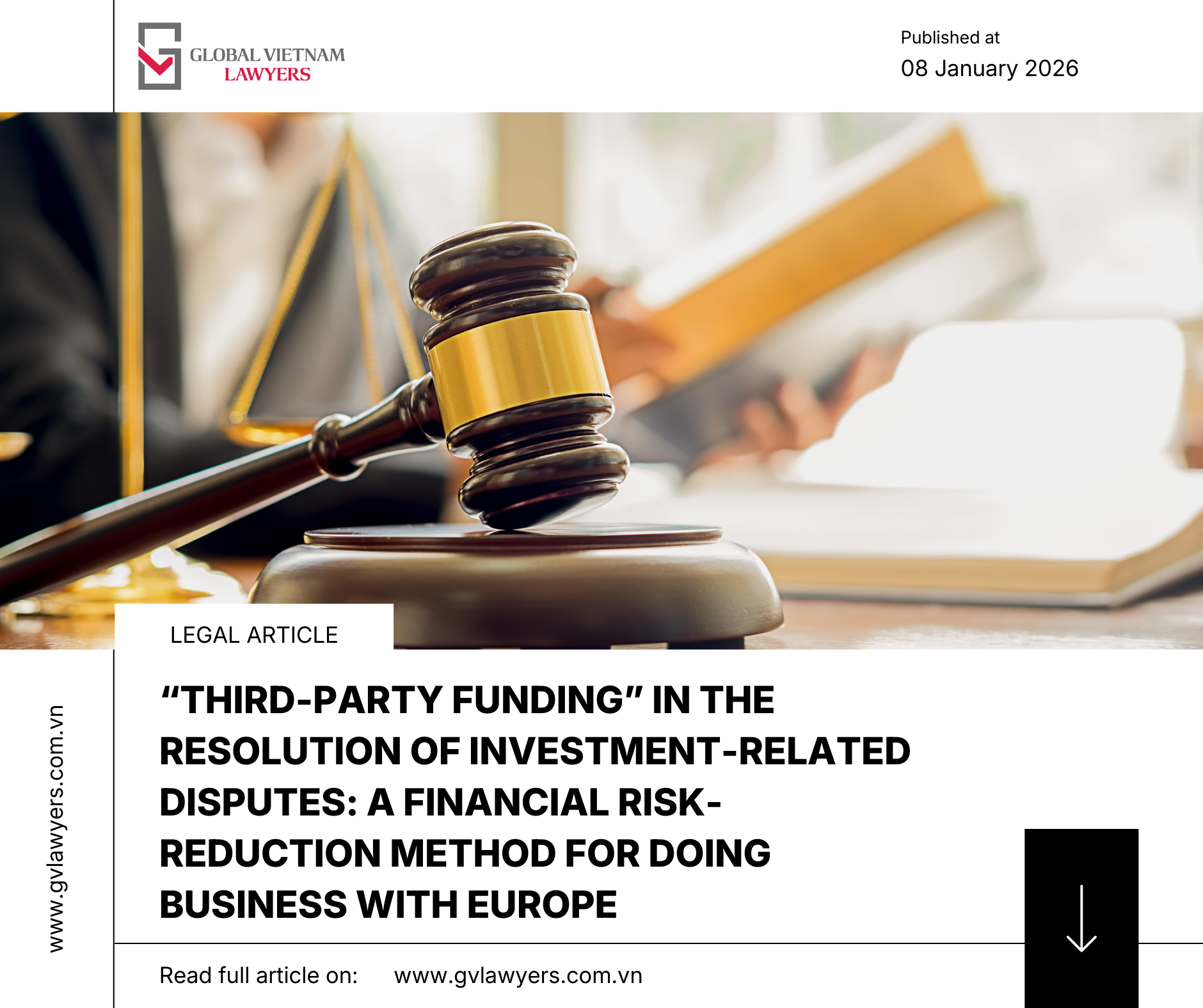An article by Lawyer Luong Van Ly and Lawyer Tran Thanh Tung titled “Private Businesses: Besieged and Under Pressure” published on The Saigon Times on March 28, 2019.
***
In the context of a Government always advocating a favourable business environment for the private sector, which serves as a major driving force to economic growth, what are the factors which might impede growth in this sector?
CAUGHT IN THE CROSSFIRE
In the course of practicing law, we have been lucky enough to work with many foreign and domestic traders who have been doing business in Vietnam. Through the interactions with them, we have been able to gather insights which may answer the said question.
Overall, the Vietnamese economy can be divided into three sectors: state invested enterprises, FDI enterprises and domestic private enterprises. The statistics indicate that FDI enterprises grow fairly well in Vietnam and play an increasingly important role in the economy. State invested enterprises have fallen short of the expectation to bring about a powerful boost to the economy in alignment with the social resources they have been holding. Private businesses are mostly small and very small ones.
In the overall relationship, domestic private businesses are being put under pressure by state invested enterprises and FDI enterprises. State owned enterprises receive a critical advantage: the mechanism and the historical relationship with state authorities. This advantage enables state owned enterprises to access important business resources such as land, natural resources, finance, credit accessibility and many other incentives.
FDI enterprises have multiple advantages when they run businesses and invest in Vietnam. With enormous investments, they are welcomed everywhere; provinces and cities scramble to invite them in through incentives on tax, land, policies etc. Domestic private businesses can hardly dare to dream about such a red carpet, except for giant ones. FDI enterprises also have a distinct advantage, perceived as the possibility of avoiding the control of Vietnamese law. They have business activities in Vietnam but their head offices are located overseas. Their operations cross Vietnamese borders, so they go beyond the control of the Vietnamese Government. In principle, Vietnamese law cannot remain in full force beyond Vietnamese borders. If a foreign employer suffers business losses in Vietnam, he definitely can leave his business and return to his country. Then the Vietnamese Government and his creditors will busy themselves with treating the leftover “garbage heap”. Therefore, FDI enterprises will still grow regardless of how the Vietnamese law changes.
What advantages do private businesses have? Almost nothing. With tiny investments, they do not dare to dream about incentives from local authorities. Without access to large resources of land and finance, they must rely on state owned and FDI enterprises to survive and grow. Since it is impossible for them to get away from their business activities to stay overseas, private businesses have no choice but to cope with difficulties in Vietnam. They eventually cannot escape from Vietnam’s business mechanism and environment. So, they remain “sustainably small”. According to Mr. Vu Tien Loc – Chairman of the Vietnam Chamber of Commerce and Industry, private businesses are just “coracles” in the ocean. Actually, most of them are not strong enough to cope with the competitive pressure of the domestic economy, not to mention “offshore fishing”.
THE STATE – REFEREE OR COMPETITOR?
In the relationship with the corporate community, the State is playing two roles simultaneously – the rule-maker and the investor. The State enacts laws as playing rules for enterprises of all types to compete with one another equally while functioning as a referee in case of a dispute amongst players. Its second role includes making investments and holding capital in state owned/invested enterprises. To become a fair referee, the State must be neutral and not for profit, but to generate profits, the State as an investor must compete with other enterprises to gain profits. So, these two roles contradict each other.
Currently, the State is not functioning well as a rule-maker. Many policies and laws are aimed at exalting state management rather than facilitating enterprises. The 2014 Enterprise Law attempts to eliminate the arbitrary issuance of business conditions which have been previously “confined” to conditional business lines – at a figure of 276 (now down to 243). However, business conditions can still be issued by other ministries or state authorities whenever they want. Struggling for the freedom of business has always been a battle since 1990 (when the Private Enterprise Law and the first Company Law were enacted) until now. The Vinasun versus Grab lawsuit is in effect a dispute between Vinasun and the State to remove unfair business conditions and to claim rights and equal business in favour of traditional taxi companies.
Moreover, unfavourable policies by the State may come upon private businesses at any time. The recent controversy about the draft National Standards on “normative practices in fish sauce production” between traditional and industrial fish sauce may be seen as an example.
Looking at the growth of FDI and private businesses, we may subconsciously think – is it right that the mechanisms and laws by the State might impede the growth of private businesses? To many of us, the answer is clear!
HOW TO DEVELOP PRIVATE BUSINESSES?
We can see from the current context that private businesses are besieged on three sides by FDI enterprises, state invested enterprises and the State itself, which squeezes the growing space of private enterprises. A policy related question can also be raised: what should the State do to develop private businesses? Bring them much more growing space!
In terms of policies, it is perhaps high time for the State to change its view about the level of priority between state owned and private enterprises, whereby it must prioritize private enterprises and consider them as a driving force of the economy.
As a matter of law, for the upcoming occasion amending the Enterprise Law and Investment Law, we think it is necessary to narrow the scope of prohibited or conditional business lines for the sake of the right to business of the enterprises. Concurrently, the State should take a bold step to abolish the Investment Law or integrate it into the Enterprise Law because the Investment Law has ended its historical role.
In the long term, the State should seek to diminish its role step by step as an investor to become a better rule-maker. Equitization is a suitable measure which should be promoted to diversify the ownership in state owned enterprises, thereby enhancing the performance of this sector.









